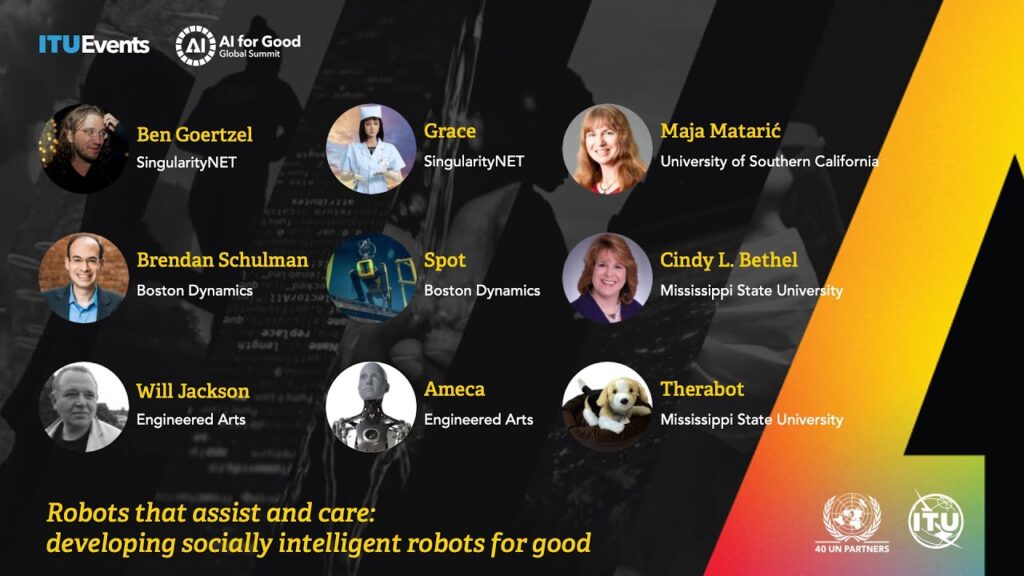Robots have long been confined to the digital realm, providing advanced artificial intelligence (AI) capabilities through computer programs and algorithms. However, the world of robotics is rapidly evolving, bringing AI out of the computer and into the physical world. In a recent panel session, experts in the field explored and demonstrated some of the most exciting developments in this area, specifically focusing on industrial robots.
These industrial robots are revolutionizing various sectors, from manufacturing to healthcare. With their advanced capabilities, they are capable of performing complex tasks and enhancing overall efficiency. The integration of AI into industrial robots has brought about a new level of automation and intelligence, making them indispensable in modern-day industries.
One of the key objectives of developing industrial robots is to create socially intelligent machines that can work alongside humans. These robots are designed to interact with their environment and collaborate with human workers, enhancing productivity and safety in the workplace. They possess the ability to adapt to changing circumstances and handle unforeseen challenges, making them highly versatile and valuable assets.
Industrial robots equipped with AI are transforming manufacturing processes, making them faster, more efficient, and cost-effective. These robots can handle repetitive tasks with precision and consistency, eliminating the risks associated with human error. By automating various stages of production, manufacturers can achieve higher production rates, reduce waste, and improve product quality.
In the healthcare sector, robots are assisting medical professionals by performing delicate surgeries, handling medication dispensing, and providing support in patient care. With their advanced AI capabilities, these robots can analyze complex medical data, provide accurate diagnoses, and assist in treatment planning. They have the potential to reduce errors and improve patient outcomes, ultimately saving lives.
But the integration of AI into industrial robots is not without challenges. Ethical considerations surrounding job displacement and the impact on the workforce need to be addressed. While robots can perform tasks more efficiently, it raises concerns about potential job losses. It is essential to find a balance between human workers and robots, where humans can focus on more creative and higher-order thinking tasks, while robots handle repetitive and mundane jobs.
Moreover, there is a need for stringent regulations and standards to ensure the safe and ethical use of AI-powered robots. As these robots become more advanced and independent, it is crucial to implement safeguards that prevent misuse or harm. Transparency, accountability, and ethical considerations should be at the forefront of robot development to mitigate potential risks.
The future of industrial robots is incredibly promising. With advancements in AI, they are becoming more capable of adapting to dynamic and unpredictable environments. These robots will continue to play a crucial role in revolutionizing industries, driving innovation, and improving overall efficiency.
In conclusion, the integration of AI into industrial robots is bringing AI out of the computer and into the physical world. This panel session demonstrated the incredible potential of these robots to enhance productivity, efficiency, and safety in various sectors. From manufacturing to healthcare, AI-powered robots are transforming industries and revolutionizing the way we work. However, ethical considerations and regulations need to be prioritized to ensure the responsible use of these robots. The future holds exciting possibilities for industrial robots, and their continued development will undoubtedly shape the way we live and work.
Industrial Robot
Developing Socially Intelligent Robots for Assisting and Caring, Enhancing Lives and Industries


